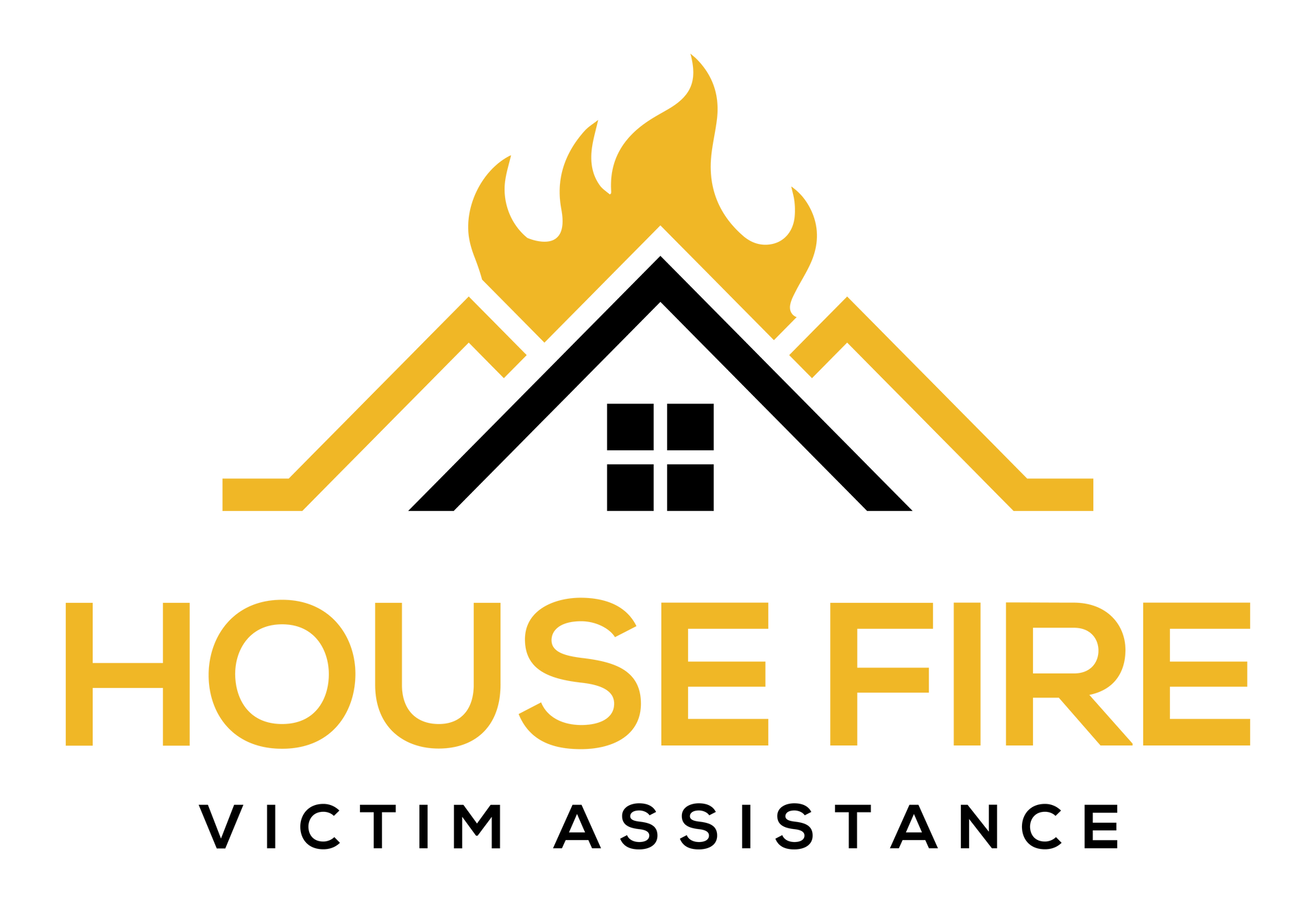House Fire Victim Assistance in Tennessee
Get Help After A House Fire From A-Z
Whether you need board up, fire restoration, insurance help, or wanting to sell as is
Homepage

The sudden devastation of a house fire transforms life in an instant, leaving families facing overwhelming challenges and uncertainty. Tennessee's robust support network stands as a beacon of hope, offering immediate relief through programs like the Tennessee Fire Foundation's SAVE initiative and sustained aid via FEMA's federal assistance programs.
Within hours of a fire, dedicated emergency response teams can provide temporary shelter, essential supplies, and financial assistance to help families take their first steps toward recovery.
From securing immediate housing to accessing emergency funds, Tennessee's multi-layered support system ensures no family faces this crisis alone. Local community organizations, state agencies, and federal programs work in concert to provide both immediate relief and long-term rebuilding assistance.
These resources extend beyond basic necessities to include legal aid, insurance navigation support, and specialized programs for replacing essential documents.
This thorough guide illuminates the path forward, outlining the exact steps and resources available to fire victims throughout Tennessee.
By understanding these crucial support systems and knowing precisely where to turn, you can begin the journey toward rebuilding your life with confidence and hope. Every day brings new progress when you have the right resources at your fingertips.
Immediate Emergency Assistance
I've helped numerous families find their way through the aftermath of house fires, and I can tell you firsthand that understanding where to turn in those critical first hours makes all the difference. Tennessee's robust support systems can help you bounce back faster than you might expect.
First 24-48 Hours Support
The moments right after a house fire are overwhelming - I know because I've been there with families when they're facing their toughest hours. Here's what you need to focus on:
- Find a safe place to stay immediately
- Contact your insurance company for emergency funds
- Connect with local emergency services
- Gather essential supplies and medications
- Document everything with photos and notes
Your local fire department becomes your primary ally during this time. They'll help connect you with immediate resources and temporary shelter options that you might not even know exist.
Red Cross Emergency Services
The
Red Cross has been a beacon of hope for countless families I've worked with during fire emergencies. They spring into action with:
- Immediate temporary housing assistance
- Emergency food and water supplies
- Essential first aid services
- Comfort kits with hygiene items
- Direct coordination with local support services
Their volunteers arrive on-scene ready to help, often before you've even had time to process what's happened.
Tennessee Fire Foundation's SAVE Program
I've seen the
SAVE (Supplying Aid to Victims of Emergency) program make a real difference in people's lives. Here's what you need to know:
- Immediate $250 gift cards for essential needs
- Distribution through local fire departments
- Funds for food, clothing, medicine, and shelter
- On-the-spot eligibility determination
- Quick access to emergency resources
A tip: Keep every receipt and document everything from the moment you're safe. I've seen how crucial these records become when working with insurance companies later. For immediate help, call the SAVE program at (916) 641-1707, or ask your responding firefighters about accessing these emergency resources.
Government Financial Aid Programs
Recovering from a house fire can feel overwhelming, but I've found that government assistance programs offer crucial financial support to help rebuild. Let me guide you through the most effective ways to access these programs and maximize the aid available to you.
01.
FEMA Assistance Options
FEMA's financial support package is remarkably detailed, offering several key benefits:
- Emergency grants for temporary housing
- Funds for essential home repairs
- Replacement assistance for key household items not covered by insurance
Getting started with FEMA is straightforward. You can:
- Apply online through DisasterAssistance.gov
- Call the FEMA Helpline: 1-800-621-3362
- Download and use the FEMA mobile app
I always emphasize to fire survivors that timing is critical - submit your application as quickly as possible to meet
FEMA's strict deadlines.
02.
State Disaster Relief Funds
Here in Tennessee, we're fortunate to have additional support layers beyond federal assistance. The Tennessee Fire Response Fund works hand-in-hand with various state programs to provide targeted aid. I've seen these programs help countless families bridge coverage gaps, especially when:
- Federal assistance isn't enough
- You don't qualify for certain FEMA programs
- You need specialized support for unique circumstances
03.
County-Specific Support Programs
Your local county can be a powerful ally in recovery. For example, Los Angeles County offers valuable resources like:
- Property tax relief programs
- Emergency food assistance through Disaster CalFresh
- One-stop Local Assistance Centers
These Local Assistance Centers are absolute gems - they bring multiple agencies together under one roof, making it much easier to find and utilize available resources. From my experience working with fire survivors, I've found that connecting with your county's support system early makes a huge difference.
Need to get started? Here's what you can do:
- Visit your county's emergency services website
- Contact your nearest Local Assistance Center
- For Los Angeles County residents, call the Department of Public Social Services: 866-488-8482
Remember, while each program has unique requirements, they're designed to work together seamlessly to support your recovery journey.
Housing Solutions And Support
Losing your home to a fire is devastating - I've worked with countless families facing this challenge, and securing safe shelter is always the first crucial step. Tennessee's thorough support system offers multiple pathways from emergency housing to permanent homes, and I'll guide you through the options I've seen work best for families in crisis.
Temporary Shelter Options
The
Red Cross serves as your immediate lifeline after a house fire. I've watched their teams spring into action countless times, quickly connecting families with local hotels and emergency shelters. These temporary havens provide:
- A safe, comfortable place to sleep
- Basic toiletries and necessities
- Access to emergency support services
- Immediate stability while you plan the next steps
Plus, the
Tennessee Fire Foundation's SAVE program offers $250 gift cards for immediate expenses - a lifeline I've seen help many families bridge the gap during those first critical days.
Rental Assistance Programs
Moving from emergency shelter to stable temporary housing becomes much more manageable with available support programs. Here's what's typically available:
- FEMA temporary housing assistance
- Rent payment coverage
- Essential utilities support
- Local housing authority programs
I've helped many families explore these resources through their nearest Local Assistance Center, where dedicated staff assist individuals in understanding the application process and identifying the best options for your situation.

Long-Term Housing Resources
Your path to permanent housing might feel overwhelming, but you're not alone. Local Assistance Centers offer housing counselors who become your partners in recovery. They'll help you:
- Connect with reputable contractors
- Explore building permits and regulations
- Understand insurance claims processes
- Access special rebuilding programs
- Explore funding sources for reconstruction
Pro tip: Keep a dedicated folder for all housing-related expenses, agreements, and contracts - I've seen this simple organization step save families countless hours when working with insurance companies and assistance programs.
Your local housing authority stands ready with detailed information about available programs and personalized support to create your housing recovery plan.
Essential Documentation And Claims
I've helped numerous families traverse the challenging aftermath of house fires, and I can tell you firsthand that proper documentation is your lifeline to recovery. Let me guide you through the essential paperwork and claims process that will help you access the support you need.
✅ Insurance Claim Steps
Start your insurance claim journey immediately after ensuring everyone's safety. Here's what I recommend based on years of experience:
- Contact your insurance company right away - don't wait even a day
- Take extensive photos and videos of all damage before touching anything
- Create a digital folder of all damage documentation
- Record every conversation with your insurer in detail (date, time, representative name, discussion points)
- Save all email correspondence in a dedicated folder
If you're hitting roadblocks with your insurance company, don't get discouraged. The Tennessee Department of Insurance has been incredibly helpful for many of my clients - they'll advocate for you and help break through delays.
✅ Required Papers For Assistance
Through working with countless families, I've compiled this essential document checklist for assistance applications:
Primary Documents:
- Government-issued photo ID
- Proof of residency (recent utility bills, lease, or mortgage statements)
- Insurance policies with claim numbers
- Social Security cards for everyone in your household
- Recent pay stubs or tax returns
Lost your documents in the fire? Don't panic - I've seen this situation many times. Local Assistance Centers are amazing resources for getting replacements. For FEMA help, simply call 1-800-621-3362 or visit DisasterAssistance.gov. They're well-versed in working with fire survivors and have alternative verification methods ready.
✅ Property Loss Documentation
Creating a thorough record of your losses is crucial - I've seen this make a significant difference in claim outcomes. Here's my tried-and-true approach to documenting property loss:
Room-by-Room Inventory:
- List every damaged or destroyed item
- Note purchase dates and original prices
- Record brand names and model numbers
- Describe pre-fire condition
- Take detailed photos (when safe)
Another tip: Check your phone's cloud backup, social media accounts, and family photos for pictures of your home before the fire. These have proven invaluable for many families I've worked with in proving pre-fire condition.
Keep every receipt from your post-fire expenses:
- Temporary housing costs
- Meal expenses
- Replacement item purchases
- Transportation costs
- Emergency supplies
Store all documentation in multiple places - I recommend both cloud storage and sharing copies with a trusted family member. This redundancy has saved many families from additional stress during the recovery process.
Local Support Networks
Recovering from a house fire can feel overwhelming, but I've discovered that local communities offer remarkable support systems designed specifically for disaster victims.
Through my work with fire survivors, I've seen firsthand how these networks provide personalized assistance and connect people with essential resources they might otherwise miss.
Tennessee Assistance Centers
I'm always amazed by how efficiently Local Assistance Centers operate as one-stop support hubs for fire victims. These centers bring multiple services together in convenient locations like UCLA Research Park and Pasadena City College Community Education Center.
During my visits to these facilities, I've watched dedicated representatives from
government agencies,
nonprofits, and
support organizations work tirelessly to help survivors. They offer hands-on guidance for:
- Federal aid applications
- Local recovery program access
- Insurance claim assistance
- Document replacement services
- Housing resources
- Financial aid coordination
Community Organizations
The backbone of immediate disaster relief often comes from community organizations that spring into action when disaster strikes.
- Immediate shelter arrangements
- Hot meals and emergency food supplies
- First aid and medical support
- Emergency financial assistance
- Resource coordination services
I've worked closely with the Tennessee Fire Foundation's SAVE program, which provides $250 gift cards through local fire departments. These funds help survivors bridge the gap for immediate needs like food, clothing, and temporary housing.
What makes these organizations particularly effective is their significant understanding of local needs and their ability to respond swiftly.
Faith-Based Support Groups
In my experience,
faith-based organizations prove invaluable during recovery, welcoming everyone regardless of religious beliefs. These groups excel at providing integrated support through:
- Emergency shelter coordination
- Essential clothing and household item distribution
- Professional counseling services
- Organized cleanup assistance
- Daily meal programs
- Long-term recovery support
These organizations maintain robust community connections and often step in with sustained assistance long after initial aid programs conclude.
I've witnessed countless examples of faith-based groups providing both practical help and emotional support throughout the entire recovery journey. Their dedication to supporting
fire survivors creates a crucial safety net when families need it most.
Financial Recovery Resources
Recovering from a house fire can feel overwhelming, but I've helped many families explore the various relief programs Tennessee offers. Let's explore the financial resources available to help you rebuild and recover.
Tax Relief Options
If you're dealing with fire damage in Los Angeles County, you'll find some breathing room regarding taxes. The
Tennessee Franchise Tax Board typically extends tax filing deadlines to October 15th of the following year, giving you precious time to gather documents and organize your finances. Here's what you should know:
- Immediate property tax relief for damaged structures
- Extended deadlines for filing state tax returns
- Possible deductions for disaster-related losses
- Special provisions for replacement property purchases
Disaster Loans And Grants
victims. These
grants are particularly valuable because they don't require repayment. Here's what FEMA typically covers:
- Temporary housing expenses
- Essential home repairs
- Replacement of basic household items
- Personal property losses not covered by insurance
Ready to apply? You've got three easy options:
- Visit DisasterAssistance.gov
- Download the FEMA mobile app
- Call 1-800-621-3362 for direct assistance
Property Value Reassessment
Here's something many homeowners don't realize - you can request a reduction in your property's assessed value after fire damage. I've guided numerous families through this process, and it can provide substantial relief while you rebuild.
Key benefits include:
Lower property tax obligations
Adjustments based on actual damage
Relief continues until repairs are complete
Immediate tax burden reduction
Start the reassessment process quickly - there are strict deadlines after a disaster. Work directly with your county assessor's office to document the damage and determine your property's adjusted value.
Remember to keep detailed records of everything: receipts, photos, application forms, and all correspondence with tax authorities and FEMA. I've learned that thorough documentation makes the difference between getting partial or full benefits during recovery.
Basic Needs Assistance
I've helped numerous families move through the challenging aftermath of house fires, and I can tell you firsthand that securing daily necessities becomes your most pressing concern. Tennessee's robust support system offers several immediate assistance programs that can help you get back on your feet.

Food Aid Programs
Getting food on the table shouldn't be a worry when you're dealing with fire recovery. Here's what's available right now:
- Disaster CalFresh program
- Provides emergency food assistance
- Los Angeles County residents can call 866-488-8482
- Visit any LA Department of Public Social Services office in person
- Red Cross Emergency Food Services
- Immediate meal assistance
- No-cost emergency food supplies
- On-site food distribution at emergency shelters
Clothing And Personal Items
I've seen how the Tennessee Fire Foundation's SAVE program makes an immediate difference in people's lives. Here's what you need to know:
- $250 gift cards for essential purchases
- Available through local fire departments
- Can be used for clothing and personal necessities
- Quick access when you need it most
Local assistance centers throughout Tennessee partner with charitable organizations to provide:
- New clothing items
- Personal hygiene products
- Basic household necessities
- Essential daily supplies
Medical Supply Access
Losing medical supplies in a fire can be particularly stressful. I've found these resources particularly helpful for fire survivors:
- Local Assistance Centers
- Connect with medical supply providers
- Examine insurance coverage
- Find temporary solutions
- Red Cross Medical Support
- Coordination with healthcare providers
- Emergency prescription assistance
- Temporary medical equipment access
Your local assistance center acts as your one-stop hub for accessing all these services. I always recommend making this your first stop - they'll help you tap into resources you might not even know exist, and they'll streamline the whole process of getting your immediate needs met.
Recovery And Rebuilding
The journey from devastation to rebuilding your home can feel overwhelming, but you're not alone. I've worked with many Tennessee families through this process, and I've seen firsthand how the state's robust support systems can help guide you through each step of recovery.
Legal Aid Services
When a friend suggested I look into cash buyers, I was skeptical. It sounded too good to be true. But after my experience, I can tell you that for owners of fire-damaged properties,
cash buyers and
real estate investors can be a godsend. These buyers specialize in purchasing homes "as-is," often sight unseen. They're not fazed by fire damage because they're in the business of renovating and flipping properties. When I reached out to a local real estate investor, I was surprised by how quickly they made an offer.
The process was refreshingly straightforward:
Having the right legal guidance can make all the difference in your recovery journey. I always recommend starting with Tennessee's Local Assistance Centers, where you'll find dedicated legal aid organizations specializing in disaster recovery. These experts will:
- Review your insurance policies and explain coverage details
- Protect your rights as a property owner
- Help resolve disputes during rebuilding
- Review contractor agreements for legal compliance
- Ensure you understand all
documentation requirements
Contractor Selection Help
Finding a trustworthy contractor is crucial - I've seen how the right choice can streamline rebuilding while the wrong one can create headaches. Local Assistance Centers offer invaluable support by:
- Providing lists of licensed, pre-screened contractors
- Helping verify credentials and references
- Explaining the competitive bidding process
- Connecting you with professionals experienced in Tennessee's building codes
- Offering guidance on fire-resistant construction requirements
Always get everything in writing and never pay the full amount before work completion. I've found that a clear payment schedule protects both homeowners and contractors.
Permit Fast-Track Programs
Here's some good news - many Tennessee counties have streamlined their permitting processes specifically for fire victims. These special programs typically include:
- Expedited permit processing times
- Priority scheduling for inspections
- Reduced or waived permit fees
- Dedicated staff for fire reconstruction projects
- Simplified application procedures
Your local
building department likely has a special task force or coordinator ready to guide you through reconstruction. I've seen these teams work wonders in helping families move forward from initial planning to final inspection, making the rebuilding process smoother and more manageable.
Get Help After A House Fire From A-Z
Whether you need board up, fire restoration, insurance help, or wanting to sell as is
Home2 - Website Form
Frequently Asked Questions
How quickly can I receive emergency financial assistance after a house fire?
I've found that Tennessee offers remarkably fast emergency support for fire survivors. Through the Tennessee Fire Foundation's SAVE program, you can receive a $250 gift card within 24-48 hours if you qualify.
The Red Cross steps in immediately too, providing crucial assistance for basics like food, shelter, and clothing. If you're seeking larger financial support through FEMA, you'll typically see funds within 3-7 business days after they approve your application.
What documents do I need to apply for FEMA assistance in Tennessee?
Having helped others through this process, I can tell you exactly what you'll need:
- Government-issued photo ID
- Social Security number
- Proof of residence (utility bill or lease agreement)
- Insurance documentation (if you have coverage)
- Photos and descriptions of fire damage
You can easily submit everything through DisasterAssistance.gov, the FEMA mobile app, or by calling 1-800-621-3362.
Can I get help with temporary housing if my insurance doesn't cover it?
Absolutely! I'm happy to share that several options exist for temporary housing assistance. FEMA provides housing support for eligible families, regardless of insurance status.
Local Assistance Centers connect you with various housing resources and rental assistance programs in your area. For immediate shelter needs, the Red Cross offers emergency options while you work on finding a longer-term solution.
Are there special tax considerations for house fire victims in Tennessee?
You'll be relieved to know that Tennessee offers substantial tax relief for fire victims. The Tennessee Franchise Tax Board typically extends both filing and payment deadlines until October 15th of the following year. As a property owner, you may qualify for:
- Property tax reassessment to reflect your home's damaged value
- Extended property tax payment deadlines
- Additional state and federal tax relief options
How do I replace important documents lost in a house fire?
Let me help you understand this process I've assisted others in handling. Your first stop should be your local assistance center, where experts can guide you through each step. Here's how to replace key documents:
- Tennessee driver's license: Visit any DMV office
- Social Security card: Apply online or visit your local Social Security office
- Birth certificates: Order through the Tennessee Department of Public Health
- Federal tax returns: Contact the IRS directly
The good news is that most agencies fast-track document replacement for disaster victims, making the process much smoother than usual.
Conclusion
The path to recovery after a
Tennessee house fire doesn't have to be a solitary journey. I've seen firsthand how the right support can make all the difference in rebuilding lives. Here's your roadmap to essential assistance:
Immediate Financial Relief:
- SAVE program emergency gift cards ($250)
- FEMA disaster assistance grants
- Disaster CalFresh for emergency food needs
Key Contact Information:
- FEMA Helpline: 1-800-621-3362
- Tennessee Fire Foundation: 916-641-1707
- Online Portal: DisasterAssistance.gov
Recovery works best when you tap into multiple resources simultaneously. I've found that families who act quickly often receive more integrated support. Think of each program as a building block in your recovery foundation – from temporary housing solutions to essential tax relief opportunities.
Let me share a crucial piece of advice: start your applications today. Every passing day could mean missed opportunities for assistance. The network of Tennessee support services is robust and ready – you just need to reach out and connect.
Your recovery journey might feel overwhelming right now, but you've got an entire support system standing by. Take that first step. Make that first call. The path to rebuilding starts with a single action, and these programs exist specifically to help you succeed.



